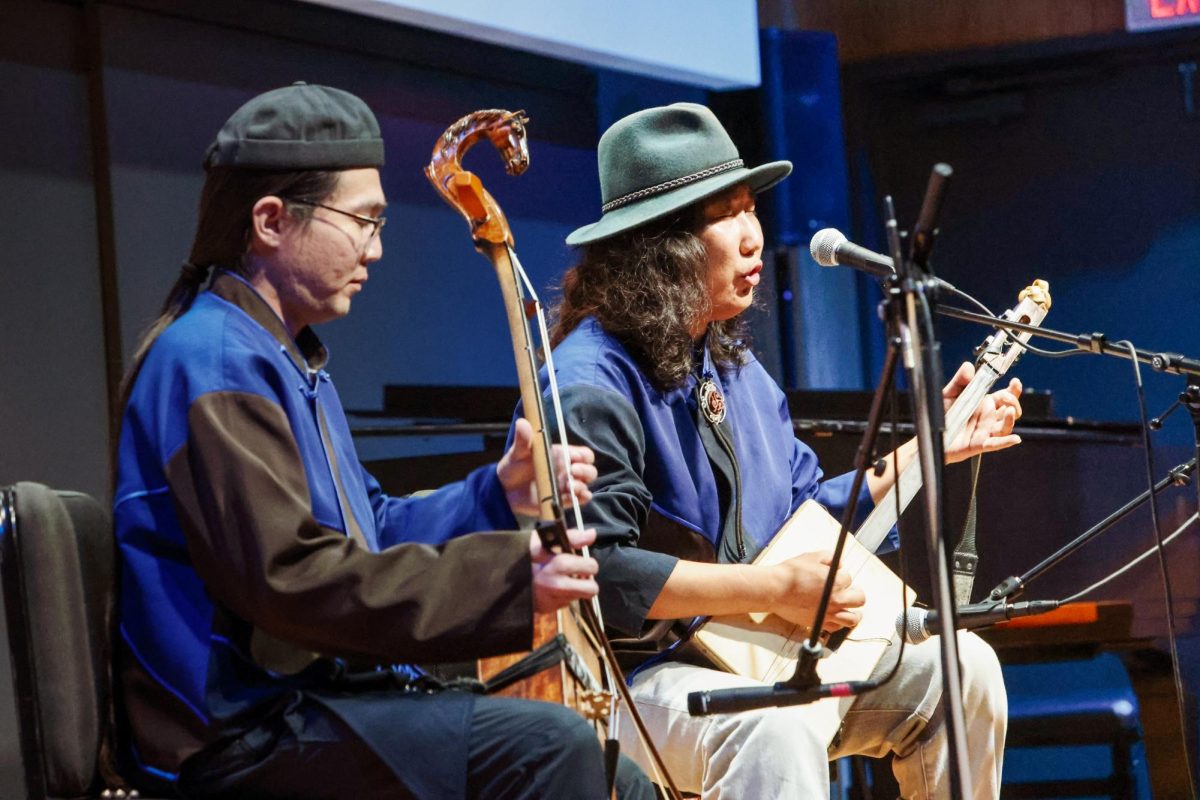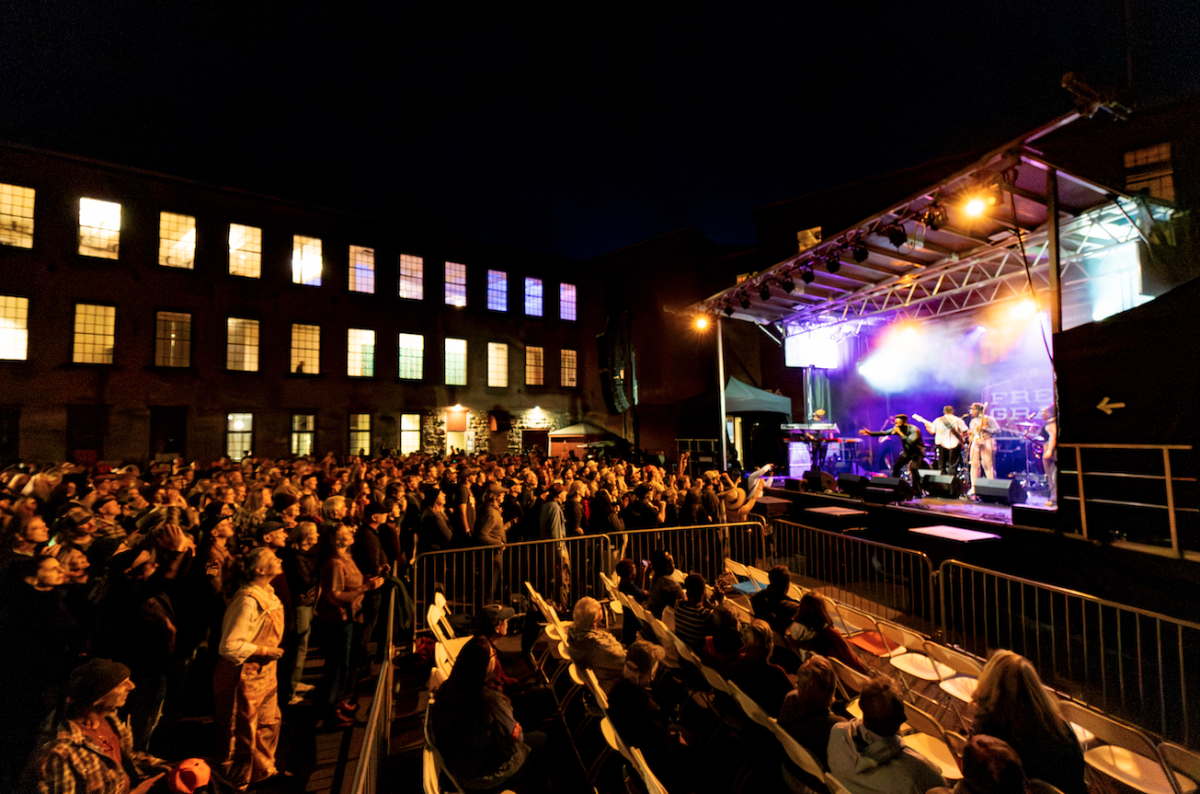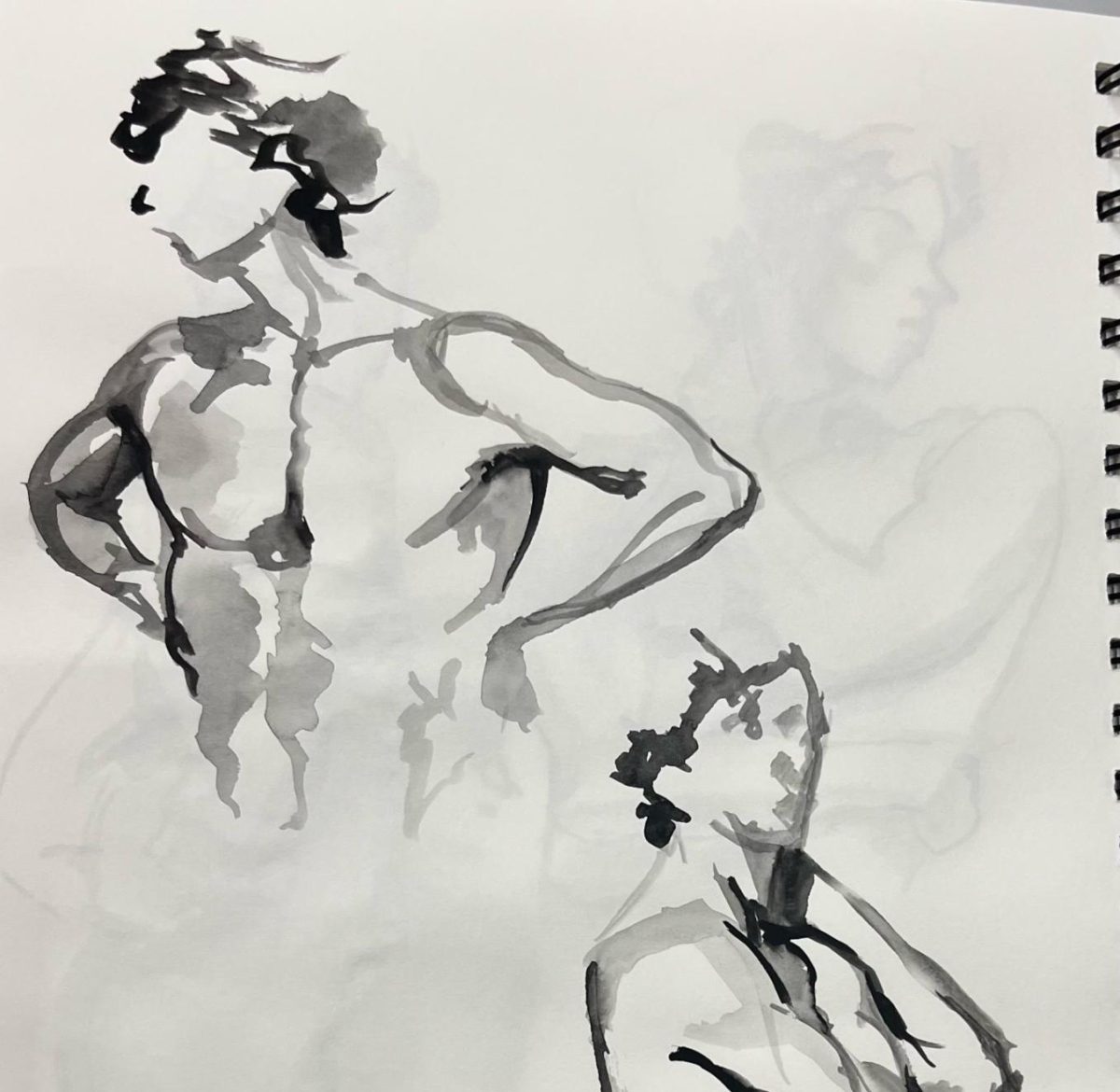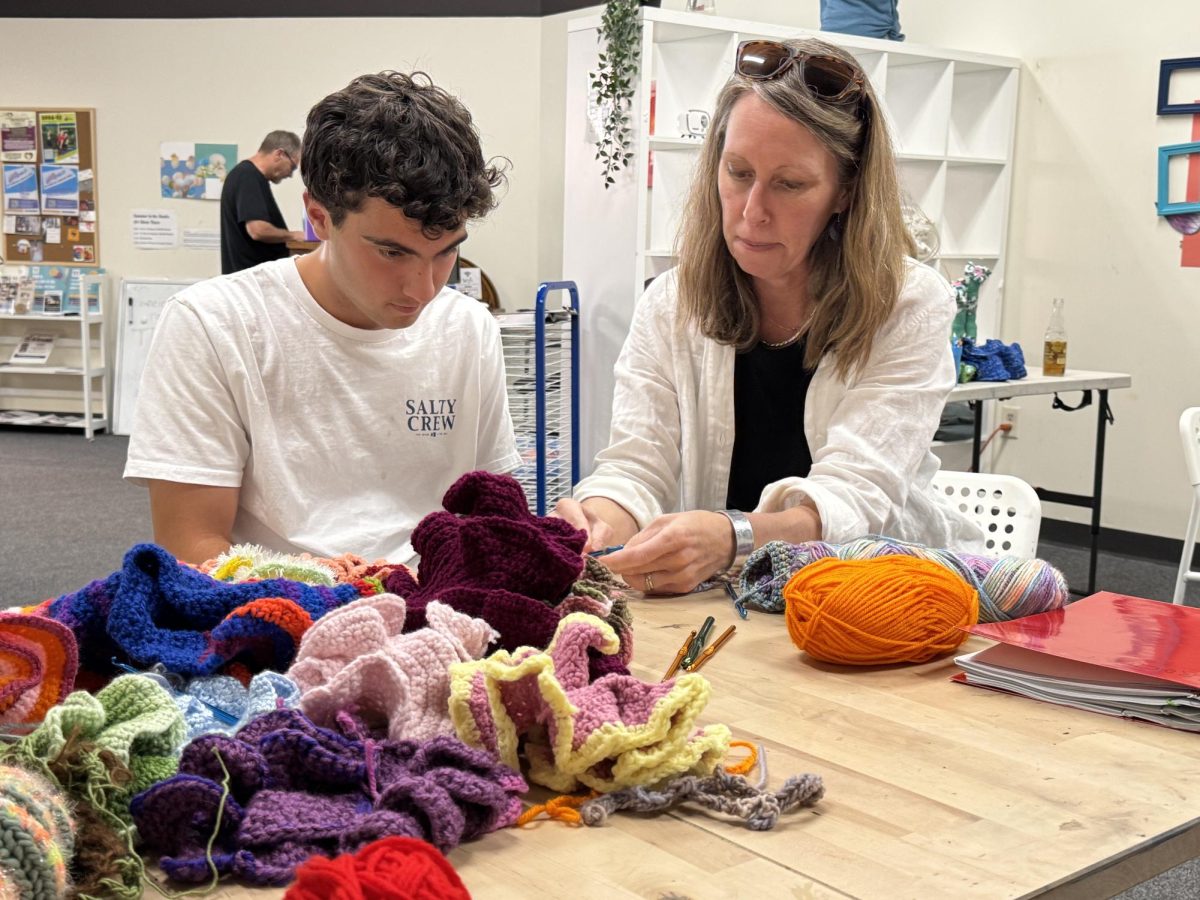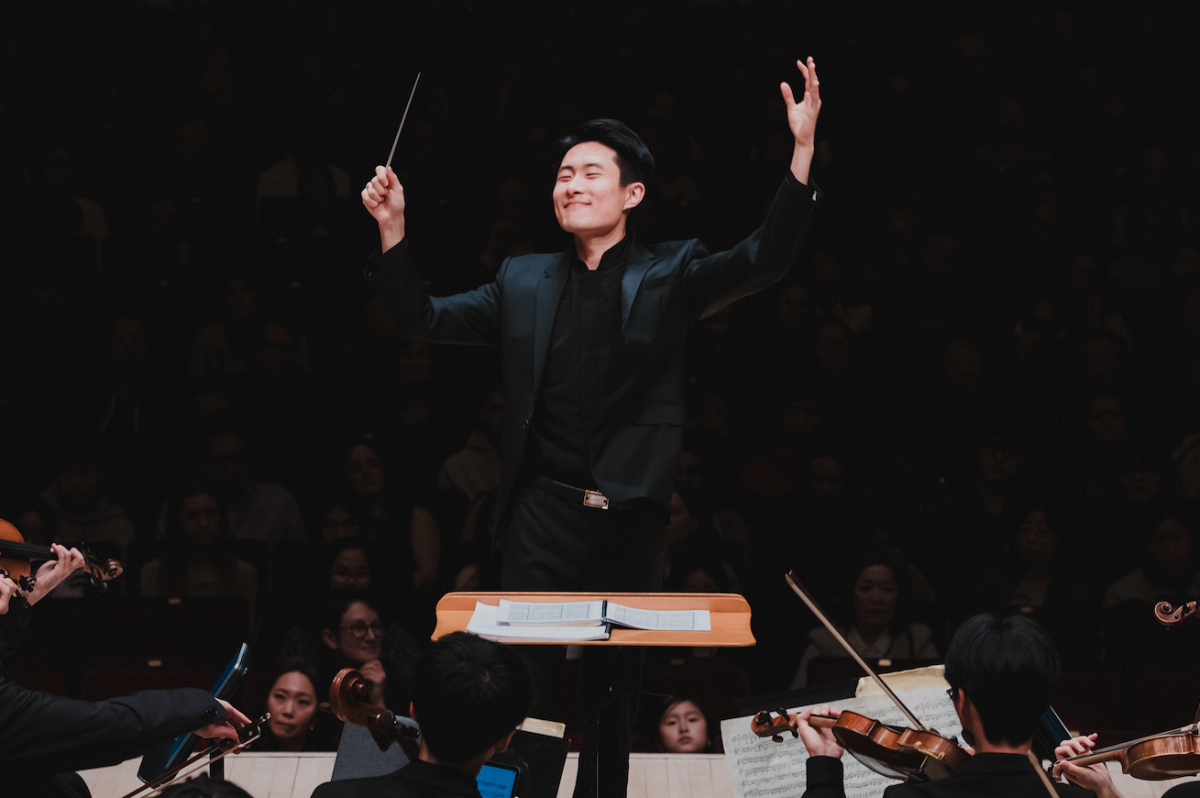
If you had spoken to Eric Kang ’09 and Caroline Fairweather ’20 when they were undergraduates and told them where their careers would take them, they probably wouldn’t have believed you. “It’s so ridiculous that I’m doing what I’m doing, and I feel like I have no idea what’s happening at any given moment,” Fairweather told the Record.
Kang and Fairweather both work on the Broadway musical Maybe Happy Ending, which opened last month to rave reviews. Kang is the associate music director and Fairweather is the assistant director for the musical comedy, which stars Darren Criss and Helen J Shen.
“When I found out that Eric was working on the show, I was like, ‘Oh, yeah, totally, this is kind of a Williams College person’s dream musical,’” Fairweather said. “It’s very nuanced and small. It’s like a little miniature portrait, and the closer you look, the more brush strokes you see.”
Both alums began their musical theatre careers at the College. As a first-year, Kang planned to double major in biology and music on the pre-med track. As he became more involved with the theatre scene on campus, however, joining Cap & Bells and working with the theatre department, his path changed.
“The pre-med went away about halfway through, and then the bio went away, and I ended up just majoring in music,” Kang said. “I just kept finding myself drawn to this avenue for storytelling. Musical theatre has always called to me as a beautiful way to use music in service of a greater thing.”
After graduating from the College, Kang earned a master of arts in collaborative piano at New York University before touring the country with various shows in 2015 — a gig he would keep for the next nine years. He finally left the road earlier this year and settled in New York City. After playing the keyboard in the orchestra for a short run of Cats: The Jellicle Ball, he joined the team of Maybe Happy Ending through a connection with the show’s writer, Will Aronson — to whom composer William Finn ’74 introduced Kang 15 years earlier.
Fairweather had been passionate about musical theatre since high school. After earning her degree in theatre at the College, she performed in a show at the Williamstown Theatre Festival directed by Michael Arden. She then joined his Broadway revival of Parade, which won Arden the 2023 Tony Award for Best Direction. After she worked with him as assistant director of the pre-Broadway tryout for The Queen of Versailles — a musical adaptation of the documentary starring Kristin Chenoweth — Arden asked Fairweather to serve as his assistant director for Maybe Happy Ending.
Fairweather’s responsibilities as assistant director varied between the two shows due to their stark production differences: The Queen of Versailles has a large ensemble and complicated set pieces, while Maybe Happy Ending is a smaller production and more reliant on automated props. However, the core of Fairweather’s job for both shows consisted of taking notes with Arden and then distributing them to everyone else working on the production. “Every day, for both shows, we would do the show at night and take notes about the changes that we wanted to make,” she explained.
As associate music director, Kang fulfills a different role in the creative process. “I’m the first substitute conductor, so any time the music director doesn’t conduct the show, I’m usually the first call,” he said. “I’m also involved in cast rehearsal, so I was there for the six weeks of initial cast rehearsals leading up to tech and previews, and I’m the primary music person at most of our understudy rehearsals.” Since Maybe Happy Ending is an open-run show, it will continue as long as people keep buying tickets. “I’ll be here for as long as they’ll have me,” he said.

Maybe Happy Ending stands out for its relative compactness, as it follows only four characters and focuses on intimate themes.
“I think that it’s a good test that we can trust Broadway audiences with small and nuanced stories,” Fairweather said. “There was a worry that it wouldn’t do as well as these huge movie adaptation musicals — and they are so valuable in their own way. But Maybe Happy Ending offers us a way to imagine a future.”
The show follows two robots who fall in love — though one of their batteries is soon to run out. “The show is, of course, about robots, but it’s really about ourselves,” she continued. “It offers us an opportunity to see that humans will not stop acting like humans just because technology is being integrated into our lives.”
Kang described the score of Maybe Happy Ending as a blend of “Korean easy-listening” and Great American songbook jazz influences. He said the styles evoke the quiet, emotional nature of the story.
“The two main characters are very earnest, they don’t have a lot of pretense about them, and they’re kind of discovering the outside world and what it means to connect with others,” Kang said. “The lyrics are simple, effective, and there’s a lot that’s left unsaid, which I think is part of the delight.”
While Fairweather reflected that she was initially frustrated that the College’s resources for aspiring actors paled in comparison to a school with a more robust musical theatre program, she said she came to see that the College’s holistic, liberal arts approach helped her in her career in ways she didn’t expect. “The ways that I have worked have mirrored the values that Williams has taught me,” she said. “If I only worried about the things that were in my purview, I would not be a very good assistant… I think that someone who might have gone to a conservatory wouldn’t have gotten as much practice butting into other people’s departments in a way that is respectful and collaborative.”
Kang echoed these sentiments. “When I left Williams, there were major holes in my musical education that I wanted to explore and learn more about,” he said. “But nothing will prepare you for the real world except going into it and discovering, like, ‘Oh, I don’t know this thing. Yeah, I should probably know this thing. How do I learn this thing?’ And I think Williams does prepare you to study and question and be curious about all of those things.”
Although the world of musical theatre can seem daunting, Kang and Fairweather insisted that anyone can successfully forge their own path within it.
“One of the things I really love about working in this industry is that I get to use lots of different skills,” Kang said. “I’m not just a piano player. I’m not just a teacher. I really draw on many parts of my personality and my skill set and feel like I want to, and also need to, bring my full self to work.”
“I feel very lucky to actually be doing the sort of mythical multi-hyphenate jobs that everyone always talks about at Williams,” Fairweather added. “I actually can’t offer my path, because everyone that I encounter will have a different path than me, which is so incredibly frustrating, but also offers a lot of opportunity.”




